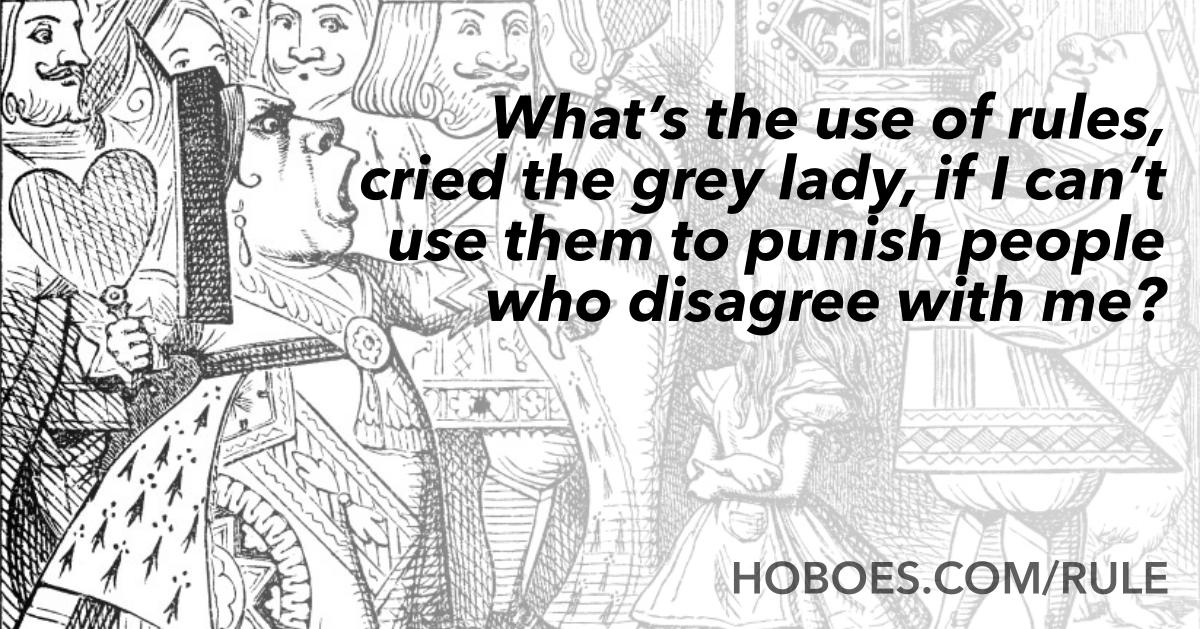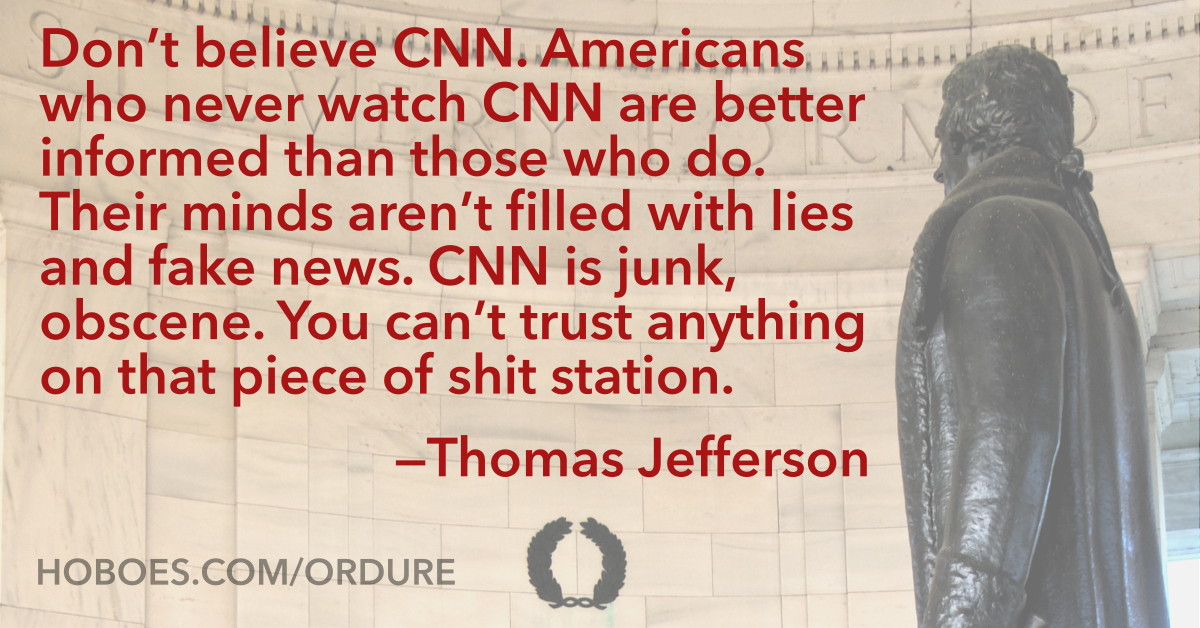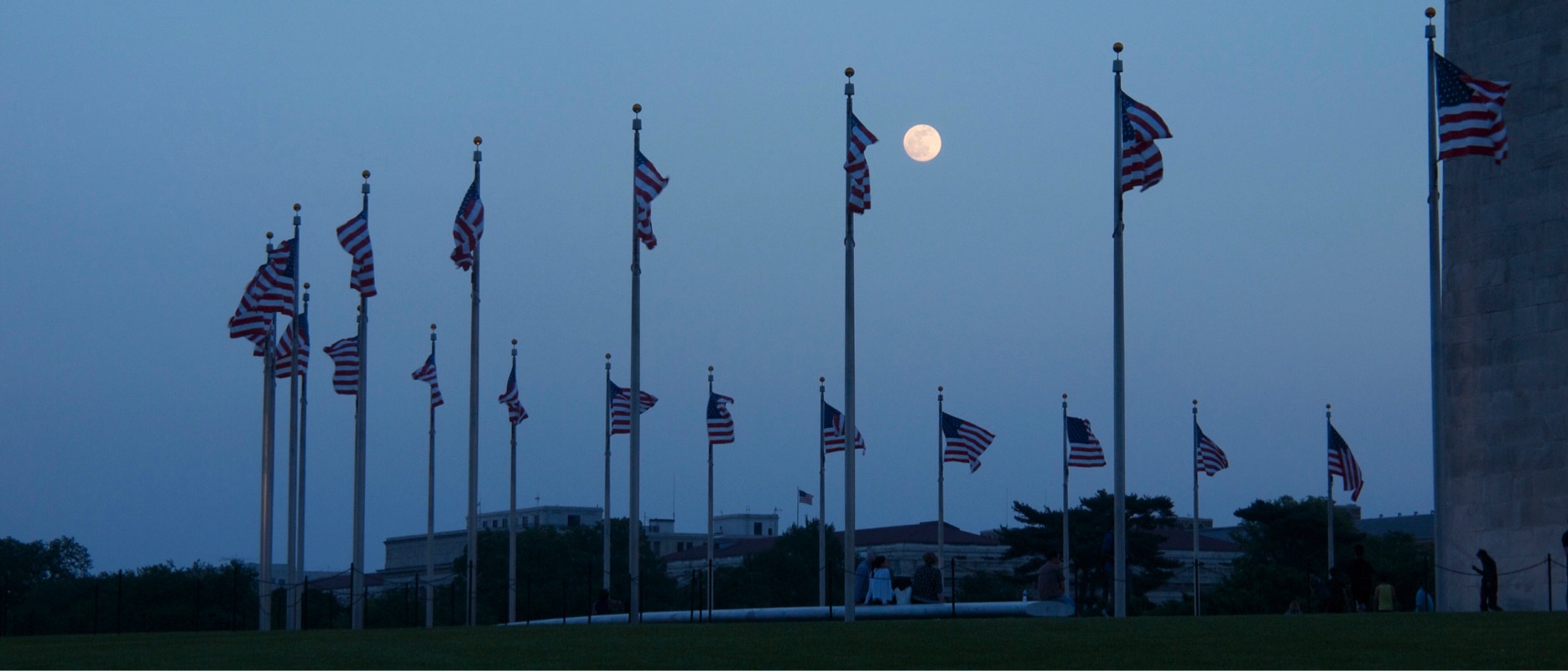2018 in Photos
- August 9, 2018: The Tyranny of the New York Times
-
As a case in point about just who is the tyrant here, take a look at this headline and subhead from Kara Swisher at the New York Times:
Rules Won’t Save Twitter. Values Will.
The platform won’t ban the dangerous liar Alex Jones because he “hasn’t violated our rules.” Then what’s the point of these rules?
If we can’t ban someone we disagree with based on the rules, then what’s the point of having rules? is a very familiar logic. It’s the logic of tyranny. In a free society, rules should exist to outline what is against the rules. You start with generalities: what actions are so wrong that they cannot be tolerated? You make rules—or laws—to codify this and serve as a general warning to everyone, politician and non-politician, journalist and non-journalist. Then you enforce the rules against everyone.
The New York Times, like all tyrants, has a completely different viewpoint. First, you decide who disagrees with you. Then, you make rules to sideline them: put them in jail, silence them, punish them. The rules aren’t going to be used against anyone but who you’ve already decided they should be used against. They certainly won’t be used against the people who made the rules.
If those rules don’t let you sideline people you disagree with, what’s the point of the rules? To the Times, there is none.
Those are “the words of a tyrant”. Not vehemently disagreeing with someone, as Jefferson did and Trump does. Jefferson’s and Trump’s are the words of freedom. It’s CNN, and the New York Times, who explicitly and knowingly use the words of tyranny.
Explicitly. Take a look at this section from the article:
Let me say that I have nothing but admiration for the long-suffering trust and safety team at Twitter, which has been tasked with the Sisyphean job of controlling humanity and scaling civility, armed only with some easily gamed and capriciously enforced rules. How are these people supposed to do that when the company has provided them with no firm set of values?
Values would require that Twitter make tough calls on high-profile and obviously malevolent figures, including tossing them off as a signal of its intent to keep it civil.
- August 8, 2018: First, CNN came for InfoWars
-
There is a special irony in defending fake news with a fake quote from Thomas Jefferson. Lately I’ve been seeing a supposedly Jeffersonian response to a Trump tweet:
The Fake News hates me for saying that they are the Enemy of the People only because they know it’s TRUE. I am providing a great service by explaining this to the American People. they purposely cause great division & distrust. They can also cause War! They are very dangerous & sick!
“When the speech condemns a free press, you are hearing the words of a tyrant.”—Thomas Jefferson
Jefferson, of course, never wrote that1, as anyone familiar with Jefferson’s writings would recognize. I cannot even imagine the howls we’d hear from the press if President Trump had tweeted:
Don’t believe CNN. Americans who never watch CNN are better informed than those who do. Their minds aren’t filled with lies and fake news. CNN is junk, obscene. You can’t trust anything on that piece of shit station.
While I don’t recall Trump writing that blatantly, Jefferson did:
Nothing can now be believed which is seen in a newspaper. Truth itself becomes suspicious by being put into that polluted vehicle. — Thomas Jefferson (Letter to John Norvell, June 14, 1807)
… the man who never looks into a newspaper is better informed than he who reads them, inasmuch as he who knows nothing is nearer to truth than he whose mind is filled with falsehoods and errors. — Thomas Jefferson (Letter to John Norvell, June 14, 1807)
- July 18, 2018: Franklin D. Trump: What else can I do?
-
Continuing on the theme of the eye of the insulter, yesterday I saw the following misguided satire on Facebook:
Retweeted Mike Scully (@scullymike): “I asked Japan if they attacked Pearl Harbor. They said no. What else can I do?” —President Franklin D. Trump
Obviously, given what we know about history, the comparison between FDR and Trump doesn’t come off very well in this instance—for FDR. Because it turns out FDR said and did exactly this, and for Russia. Trump, at least, is working to make sure the smaller nations that Russia wants to intimidate and invade have the means to defend themselves. It was only a few months ago that he approved missiles for Poland, for example, and he’s also approved weapons sales to Ukraine and military aid to Georgia. His domestic oil policies encourage American oil producers to undercut Russia’s main economic strength, oil, weakening Putin within Russia.
FDR, in comparison, just wanted to give Russia everything they wanted:
“I think,” Roosevelt told [advisor, William] Bullitt, “that if I give [Stalin] everything I possibly can and ask nothing from him in return, noblesse oblige, he won’t try to annex anything and will work with me for a world of democracy and peace.”
Roosevelt continually promoted the image of a friendly “Uncle Joe”, far beyond the need for an ally against Nazi Germany, to whitewash Joseph Stalin’s culpability for the millions dead by his policy, especially in Ukraine. Seeing this comparison made by the left is especially head-shaking because of the left’s complicity in those deaths; journalists on the left, such as Walter Duranty for the New York Times, deliberately hid Stalin’s deliberate policy of genocide from the American people. Prominent socialists George Bernard Shaw and H.G. Wells also helped Stalin hide his crimes.1
Far from “aligning” with Putin as the left claims, Trump appears to be following the advice of that other Roosevelt, Teddy, by speaking softly and carrying a big stick—or, in this case, making sure that the countries Putin is threatening have big sticks. I hope it works: Putin may not have reached Stalin’s toll against humanity, but he does sometimes seem to aspire to it.
- July 4, 2018: The Pledge of Allegiance, Francis Bellamy, and national socialism
-
A friend of mine recently wrote about his surprise at discovering that Francis Bellamy, who wrote the Pledge of Allegiance was a socialist.
Here’s a fun fact I bet you didn’t know: The pledge of allegiance was written by a socialist. I’m not quite sure what Francis Bellamy was thinking; although he imagined all the people of the world pledging to their various flags, the result of the exercise is inevitably nationalistic.
His surprise is that, how could a socialist write something nationalistic? In fact, it isn’t unlikely that, pre-World War II, a socialist might also be a nationalist. Many were. They wanted to remake civil society along military lines with the national leader at the top, and that would probably be considered nationalist today.
I’ve been reading a lot of Chesterton lately, and he was especially disdainful of socialists who argued in favor of what we would today call a nationalist approach to solving the world’s problems, an approach he called “the scientific state”. It put the state—that is to say, officials of the state—in control of everyday life, deciding who works where and for how much, among other things. His objection, in Eugenics and Other Evils was that you cannot trust such a powerful government.
The objection to a cataract is not that it is deafening or dangerous or even destructive; it is that it cannot stop… The State has suddenly and quietly gone mad. It is talking nonsense; and it can’t stop.
I was just reading a pre-World War II science fiction novel, Olaf Stapledon’s Star Maker. Stapledon appears to be a socialist in the H.G. Wells style, and Star Maker is an appeal to both a cosmic communism and to a more nationalist socialism that would implement it.
- June 20, 2018: The eye of the insulter
-
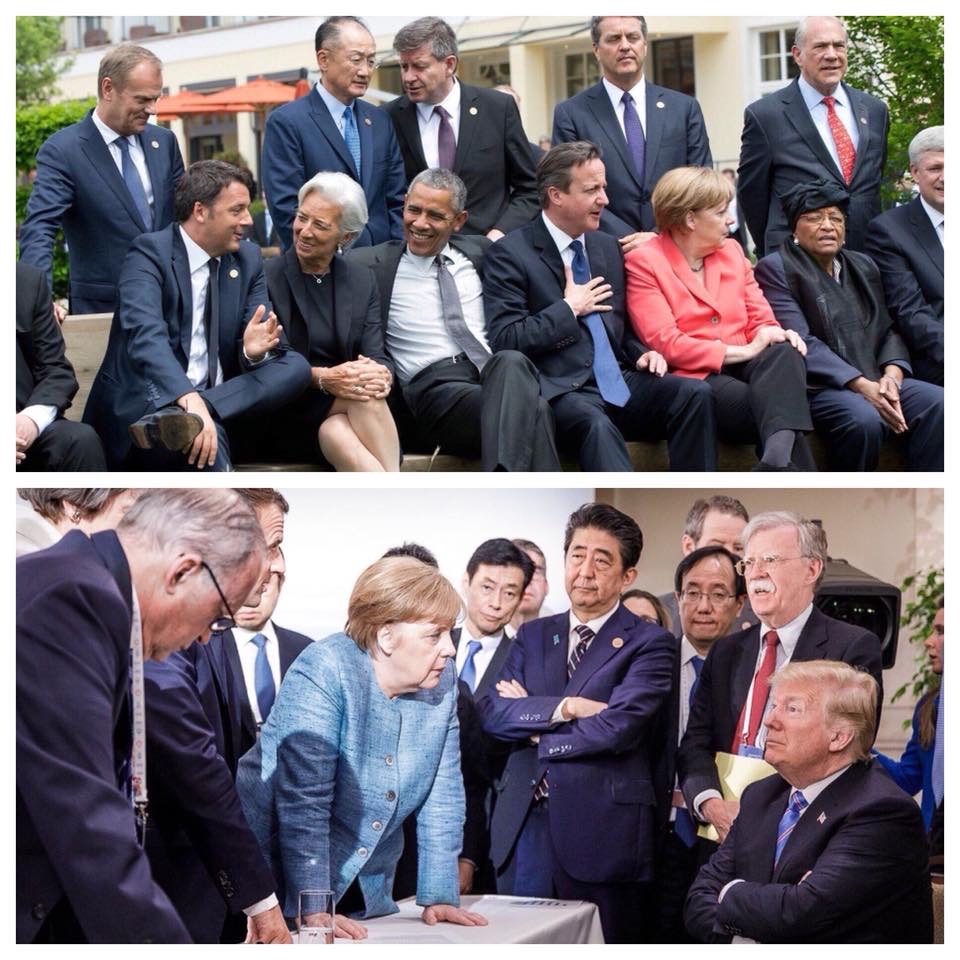
Cherry-picking photos requires that you understand what you’re looking at. Democrats seem to possess a pathological inability to see the value of getting down to work.
When I first saw this pair of photos pop up in my Facebook feed, I thought it had been posted by a conservative—and that it was an unfair comparison because the two photos were obviously taken at different points in the international meeting. I fully expect that there are photos of President Obama working, and photos of President Trump goofing off.
I turned out to be half right. I was very surprised to read further and discover that this was posted as anti-Trump and pro-Obama. My first impression was that the top photo looks like a kindergarten photo. The bottom photo looks like people working.
Denigrating a working photo and saying that everyone should always act like goofy happy kindergartners is, dare I say, how you got Trump in the first place.
The photo montage reminded me of a similar photo in California when Governor Schwarzenegger was running for re-election. That photo showed a sleezy used-car-salesman running against a strong, forceful Schwarzenegger. It turned out to be from the government unions, campaigning against Governor Schwarzenegger. Schwarzenegger won; I don’t know if the same will hold true of Trump in 2020, but if they keep with photos like this I wouldn’t be surprised. It shows a serious lack of introspection, a complete inability to recognize what other people see.
Democrats didn’t lose in 2016 because they lost the goofy class; they won that hands down. They lost because they lost the working class. Making fun of Trump because he looks like he not only is getting down to work but is convincing other world leaders to do the same seems like a losing strategy to me.1
But there’s a stranger feel to these photos. The top photo is, because I’ve recently read After America•, extraordinarily Eloi-like. The playfulness is goofy when compared to a working photo. They appear, in comparison, cluelessly unserious. To paraphrase Orwell paraphrasing Kipling, they can be that unserious only because other world leaders are working behind the scenes to make the world safe. And what these photos tell us is that those world leaders only work to make the world safe when President Trump is leading them.
- January 17, 2018: Slavery does not create wealth
-
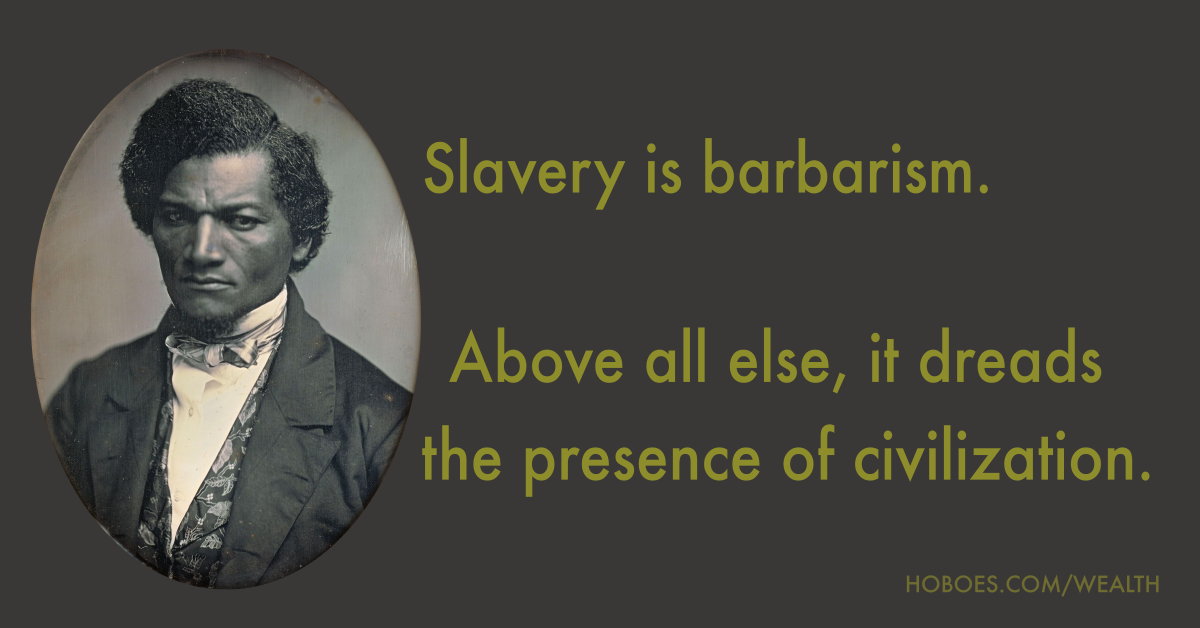
Last night I saw the strangest meme, a backhanded compliment to slavery:
You have to first of all understand nothing about the Trans-Atlantic Slave trade.
You have to not understand anything about the systematic theft of African bodies and lives. And you have to not understand how that theft built the wealth we have today in Europe and the US.
The emphasis is mine, and the problem with that part of this meme is that it makes the unwarranted assumption that, as evil as it is, slavery is useful for something. That slavery is more effective than freedom at creating wealth. But history says that it isn’t—and former slaves agree. In fact, slavery kills wealth, and what wealth it seems to create is a hollow shell that crumbles once it is no longer propped up by the state. This was true in Sparta—it is why we use the adjective “Spartan” to mean living in minimal wealth—and it was true in the American South. That’s why the Confederacy was at such a disadvantage during the war: because the North was so much better at wealth creation, and had been since the North abandoned slavery. Because the North abandoned slavery earlier, they were ahead of the South in wealth creation, which meant the ability to wage more effective war.
Throughout history, the slave trade has retarded wealth growth everywhere it has been used, from Sparta to the American South. That was one of the things that (somewhat paradoxically) most disappointed Frederick Douglass when he escaped to the North: he had assumed that even though slavery was evil, at least his suffering had enhanced the lives of slaveowners. Instead he found that even many former slaves in the North lived in greater luxury than slaveowners in the South.
More 2018
- The Year in Books: 2018
- Have I got some recommendations for you…
More Live Blog
- 2020 in Photos
- For photos, memes, and perhaps other quick notes sent from my mobile device or written on the fly during 2020.
- 2019 in Photos
- For photos, memes, and perhaps other quick notes sent from my mobile device or written on the fly during 2019.
- 2017 in Photos
- For photos, memes, and perhaps other quick notes sent from my mobile device or written on the fly during 2017.
- 2016 in photos
- For photos, memes, and perhaps other quick notes sent from my mobile device or written on the fly during 2016.
- 2015 in photos
- For photos and perhaps other quick notes sent from my mobile device or written on the fly during 2015.
- Five more pages with the topic Live Blog, and other related pages

